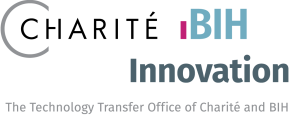The J.P. Morgan Annual Healthcare Conference is one of the largest and most well-known conferences in the world where the biotech and life science industry meets to identify and build new potential partnerships. Through One-on-One Partnering, it offers attendees the opportunity to interact, network and initiate partnerships with investors and companies. Through the global SPARK network, late-stage SPARK-BIH funded projects had the chance to apply for participation at the JPM BIO Partnering event that took place from January 9th-12th 2023. Two SPARK-BIH projects were successfully selected to attend the JPM BIO Partnering Event and have received a pitch training from SPARK Stanford beforehand:
- Prof. Dr. Gabriele Pecher and her team develop a novel ATMP as „off-the shelf” CAR product for precision immunotherapy of cancer. Their approach is based on induced pluripotent stem cells (iPSC) as a source of CAR-modified NK cells (https://www.spark-bih.de/fileadmin/spark/program/active_ATMP_Pecher_CAR.pdf).
- Dr. Felix Lorenz and his Captain T Cell team are using proprietary technologies to identify T cell receptors (TCRs) specific for cancer antigens and develop them into efficacy-enhanced novel T-cell therapies for untreatable solid cancer patients. They have successfully been awarded a follow-on GO-Bio grant from the BMBF in 2018, and have founded a start-up, which will further develop the T cell therapies for clinical application (https://www.spark-bih.de/fileadmin/spark/program/alumni_ATMP_Lorenz_CaptainTCell.pdf).
During the partnering event, both teams had many productive meetings with companies, contract manufacturing organizations (CMOs) and different investors incl. venture capitalists and family offices to discuss their project and potential partnerships. Discussion partners were not only from Europe, but from all over the world, especially from Asia and the US. Hence, participating at the JPM BIO Partnering Event was a unique opportunity for them to establish international contacts and to receive valuable project-specific feedback.


